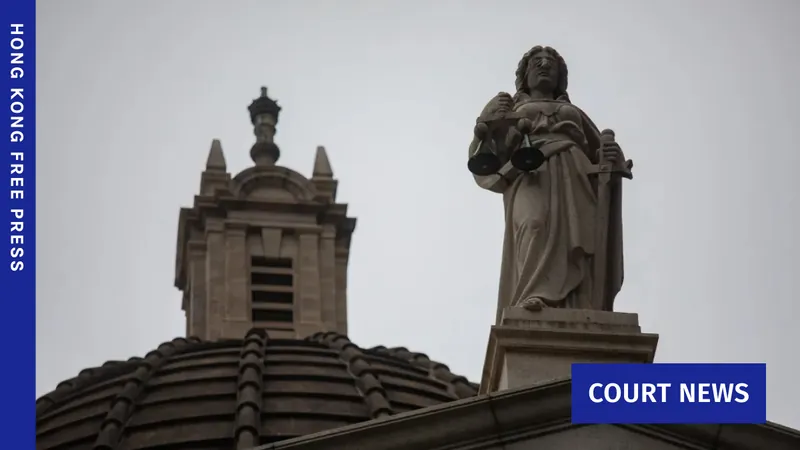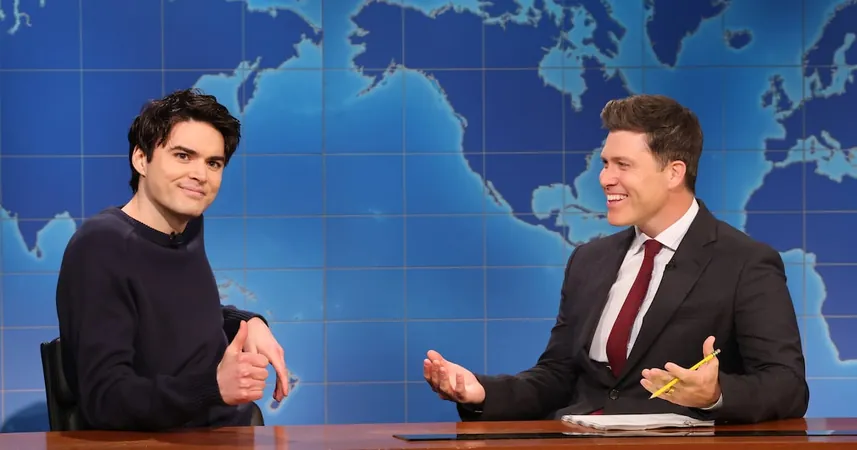
Hong Kong Court Denies Appeal from Portuguese Activist Sentenced Under Controversial Security Law
2025-09-05
Author: Ken Lee
In a significant ruling, the Hong Kong Court of Appeal has rebuffed the appeal of a Portuguese citizen, Joseph John, who sought to reduce his prison sentence under the contentious national security law enacted by Beijing.
On Friday, the appellate judges—Jeremy Poon, Derek Pang, and Anthea Pang—rejected John’s attempt to bring his case to the Court of Final Appeal, effectively upholding his five-year sentence.
Joseph John, known by his local name Wong Kin-chun, was formerly the leader of the now-defunct UK-based Hong Kong Independence Party. He pleaded guilty in April 2024 to charges of conspiring to incite secession through social media, leading to his imprisonment.
During sentencing, District Court Judge Ernest Lin condemned John for "distorting history" and accused him of attempting to rally foreign nations against both Hong Kong and China.
John's legal team had argued that sentences for conspiracy to incite secession should consider proportionality, referencing local laws rather than the stringent provisions of the national security law. However, the judges maintained that the existing minimum sentence of five years for serious national security offenses applied to conspiracy charges as well.
The judges' decision also cited a 2023 ruling affirming that guilty pleas could not reduce sentences below the mandated minimum for serious offenses, further solidifying the legal framework surrounding the national security law.
Despite losing this round, John has one final opportunity to seek a shorter sentence by appealing directly to Hong Kong's highest court.
The national security law, which has raised widespread concern for its potential to suppress dissent, was passed by the Chinese government in June 2020, bypassing Hong Kong’s local legislative body. Following a year of pro-democracy protests, the law proscribed acts of subversion, secession, and collusion with foreign entities, granting authorities extensive new powers to crack down on dissent.
This ruling underscores the ongoing tensions between civil liberties and governmental authority in Hong Kong, raising alarms among rights advocates about the future of free expression in the city.



 Brasil (PT)
Brasil (PT)
 Canada (EN)
Canada (EN)
 Chile (ES)
Chile (ES)
 Česko (CS)
Česko (CS)
 대한민국 (KO)
대한민국 (KO)
 España (ES)
España (ES)
 France (FR)
France (FR)
 Hong Kong (EN)
Hong Kong (EN)
 Italia (IT)
Italia (IT)
 日本 (JA)
日本 (JA)
 Magyarország (HU)
Magyarország (HU)
 Norge (NO)
Norge (NO)
 Polska (PL)
Polska (PL)
 Schweiz (DE)
Schweiz (DE)
 Singapore (EN)
Singapore (EN)
 Sverige (SV)
Sverige (SV)
 Suomi (FI)
Suomi (FI)
 Türkiye (TR)
Türkiye (TR)
 الإمارات العربية المتحدة (AR)
الإمارات العربية المتحدة (AR)